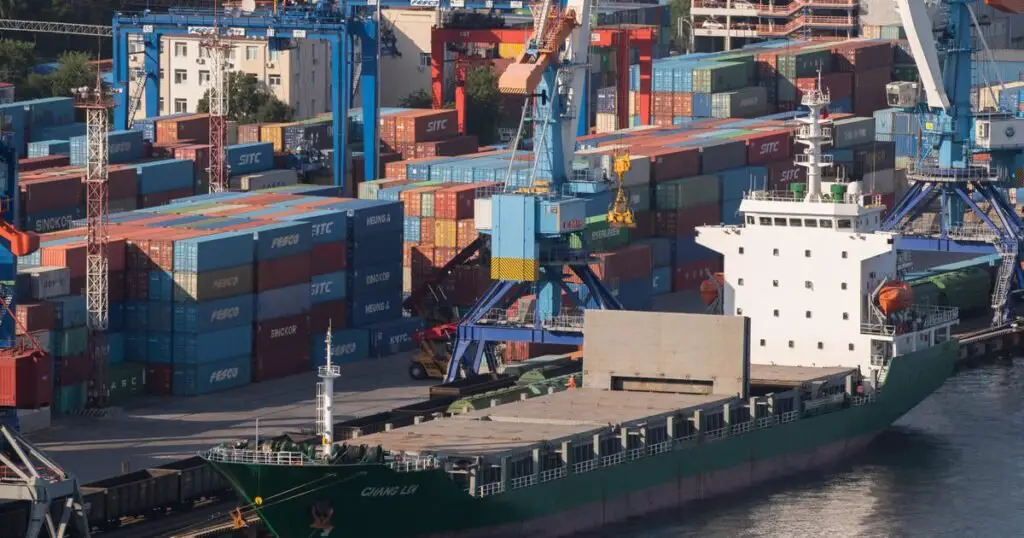A Russian cargo ship sank Mediterranean between Spain and Algeria, with two crew members missing, the Spanish Maritime Rescue Agency and the Russian Foreign Ministry said on Tuesday.
Fourteen crew members of the Ursa Major were rescued uninjured from a lifeboat and taken to Spain, the agency said. According to the Russian ministry, the ship began to sink after an explosion in the engine room.
The ship belonged to SK-Yug, a subsidiary of the Russian shipping and logistics company Oboronlogistika, which reported to the Russian Ministry of Defense Sanctions from the USA and the European Union for his ties to the Russian military.
According to Spanish authorities, there were empty containers and two cranes on board. They were unable to provide any information about the cause of the accident.
In a statement on December 20, Oboronlogistika said the cargo ship was on its way there Russia’s Far Eastern city of Vladivostok transport two 380 tonne cranes for the port. Ursa Major left St. Petersburg twelve days ago, the Russian state news agency Ria Novosti said.
Spanish authorities said they received an alert around 1 p.m. on Monday when the ship was about 57 nautical miles from Almería in southeastern Spain. Maritime rescue contacted a nearby vessel reporting poor weather conditions, a lifeboat in the water and the Ursa Major’s distress.
Authorities said a Russian warship arrived later on Monday to oversee rescue operations, and the 142-meter-long cargo ship sank around midnight. The Russian embassy in Spain told RIA Novosti it was investigating the accident and was in contact with local authorities.
Ursa Major was in the western Mediterranean at the same time as Sparta – another Russian cargo ship under US sanctions – whose destination on Tuesday was reportedly Port Said in Egypt, according to ship-watching platform MarineTraffic.com.
It is not uncommon for Russian ships to transit the Mediterranean and the Suez Canal en route from St. Petersburg to Vladivostok. With global warming, the… Northern sea route through Russia’s Arctic is increasingly used all year round, but in winter most ships still choose the southern route.
Spanish maritime rescue units remained in the area on Tuesday to monitor pollution and remove any floating objects that could be dangerous to shipping, authorities said.





